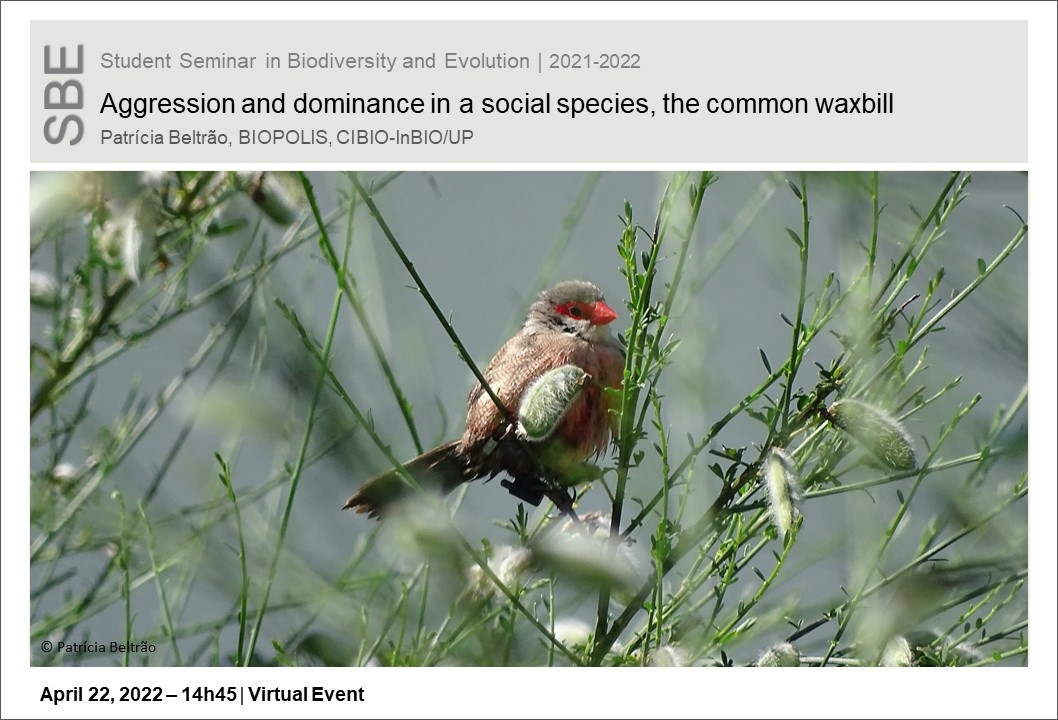Aggression and dominance in a social species, the common waxbill
22 Apr 2022 - Patrícia Beltrão, BIOPOLIS, CIBIO-InBIO/UP | 14h45 | Online

STUDENT SEMINAR IN BIODIVERSITY AND EVOLUTION
[Host: Gonçalo Cardoso, Behavioural Ecology - BE, Invasion Science - InvasionS]
Gregariousness and animal sociality may facilitate cooperation but it may also increase agonistic interactions between group members. As a result of within-group conflicts, dominance hierarchies emerge, and their establishment can then help reduce aggression levels. In this seminar, I will be sharing the work I conducted during the first part of my PhD, where I studied dominance hierarchies in a gregarious species, the common waxbill (Estrilda astrild). I wanted to understand 1) how testosterone affected dominance in a non-sexual context, 2) whether certain phenotypes predict or signal social dominance, and 3) which strategies are used to manage dominance hierarchies. In summary, I found that (1) testosterone to affect dominance differently in males and females, (2) red breast colour saturation indicates social dominance, and could thus function as a badge of status in this species. Finally, (3) waxbills use bullying of subordinate individuals to show-off aggressiveness in the presence of others with whom they may be uncertain regarding social dominance, in what appears to be a safe strategy for managing dominance hierarchies. This work highlights how waxbills perceive their relationship with conspecifics as well as their dominance status, contributing to closing the knowledge gap on the relation between cognition and dominance.
Patrícia Beltrão is a BIODIV student who is now halfway through her PhD. Her work is supervised by Gonçalo Cardoso from BIOPOLIS, CIBIO-InBIO. Patrícia’s research encompasses two main topics: (1) dominance hierarchies in common waxbills (Estrilda astrild): characterization, related phenotypes and aggression strategies; (2) relation between collective behaviour and environmental fluctuations. To tackle these research questions, Patrícia’s research encompasses experimental approaches combined with the assessment of long-term data. Patrícia studies the common waxbill, mainly in a semi-natural setting located at CIBIO-InBIO.
[Host: Gonçalo Cardoso, Behavioural Ecology - BE, Invasion Science - InvasionS]